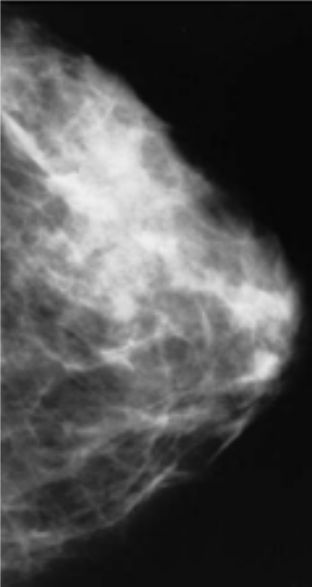Breast Cancer Awareness Month

Breast cancer is the most common type of cancer in the UK, requiring multidisciplinary care, starting from primary care to surgery and cutting-edge medical oncology. In October, during Breast Cancer Awareness Month, we are discussing clinical cases, insights, and challenges in dealing with breast cancer. MedShr can also help doctors to access the latest research and evidence in breast cancer, and learn from experts and peers around the world to help improve patient care.
Breast Cancer Screening
Regular breast screening programmes can help save the lives of thousands of women every year. According to Cancer Research UK, the programme finds cancer in 9 out of 1000 women screened.
Breast Screening Guidelines

NICE guidelines that inform the NHS programme recommends a 3-yearly routine screening for women with average risk of cancer between the ages of 50 and 70. The American Cancer Society recommends yearly mammography to women aged 45-54, switching to every other year after 55 years of age.
Women with increased risk of breast cancer, such as a history of breast or ovarian cancer in the family or previous treatment using radiation, should be eligible for screenings before the age of 50.
Mammography or MRI?
3D mammography, also known as digital breast tomosynthesis (DBT), allows a clearer visualisation of the tissue when compared to the traditional 2D mammography and is becoming increasingly common. Guidelines recommend either 2D or 3D mammography for patients with average risk of breast cancer.
Breast MRI is recommended by the American Cancer Society yearly only for patients with 20% to 25% lifetime risk of cancer. These patients should begin early MRI and mammograms at the age of 30.
Treatment
A patient diagnosed with breast cancer is referred to a multidisciplinary team for treatment.
Local Treatment
The first line of treatment for breast cancer is surgery to remove as much of the cancer as possible.
Breast-conserving surgery removes only the cancerous tissue. A mastectomy removes all the breast tissue and, if necessary, surrounding tissue. Reconstructive surgery can follow to restore the shape of the breast. Radiotherapy might be necessary depending on the stage of the cancer.
Systemic Treatment
Chemotherapy can be used before or after surgery to lower the chances of metastasis or when the cancer is metastatic. Patients with hormone receptor-positive cancer might be offered hormone therapy as well as drugs such as CDK4/6 inhibitors, mTOR inhibitors, PI3K inhibitors. Targeted drug therapy might be indicated to patients with HER2-positive breast cancer. Those include monoclonal antibodies, antibody-drug conjugates and kinase inhibitors. Targeted therapy might also be available to patients with the BRCA gene mutation and with triple negative breast cancer.
Latest Research
Latest Research Clinical trial results have recently been presented at major congresses such as ASCO and ESMO 2023:
Long-term patient-reported outcomes (PROs) from monarchE, a phase 3 trial that compared abemaciclib plus endocrine therapy (ET) versus ET alone for adjuvant treatment of hormone receptor-positive (HR+), HER2-negative, node-positive, high-risk, early breast cancer (EBC). The study concluded that most patients reported being bothered “a little bit” or “not at all” by side effects in both arms and that there were no meaningful differences in quality of life or fatigue between the arms. Only diarrhoea was found to have a meaningful difference between the treatment groups in PROs.
The NATALEE trial was a phase III study that evaluated the efficacy and safety of ribociclib, a CDK4/6 inhibitor, plus endocrine therapy as adjuvant treatment in patients with hormone receptor-positive (HR+)/human epidermal growth factor receptor 2-negative (HER2-) early breast cancer (EBC). The trial met its primary endpoint of invasive disease-free survival (iDFS), showing that ribociclib plus endocrine therapy significantly improved iDFS, with a well-tolerated safety profile.
Keep up to date with breast cancer clinical studies with MedShr Docsearch AI search tool.
Breast Cancer on MedShr
At MedShr, physicians from all over the world are discussing approaches to screening, early diagnosis and treatment of breast cancer. Join us in our mission to improve patient care by sharing cases from your clinical practice at the Global Oncology Hub.

Loading Author...
Sign in or Register to comment